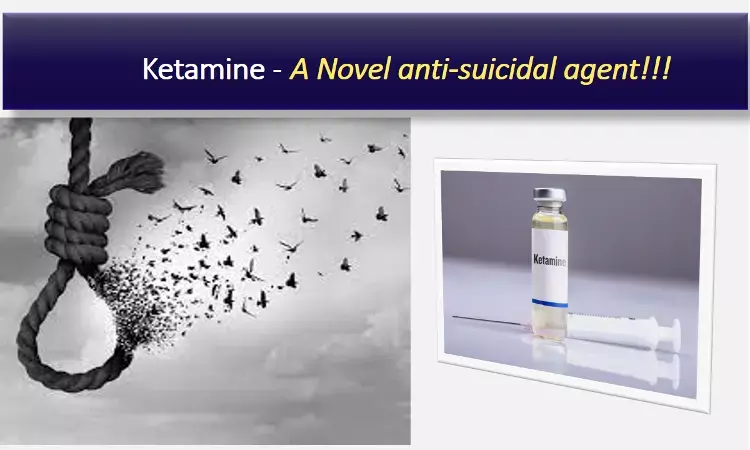- Home
- Medical news & Guidelines
- Anesthesiology
- Cardiology and CTVS
- Critical Care
- Dentistry
- Dermatology
- Diabetes and Endocrinology
- ENT
- Gastroenterology
- Medicine
- Nephrology
- Neurology
- Obstretics-Gynaecology
- Oncology
- Ophthalmology
- Orthopaedics
- Pediatrics-Neonatology
- Psychiatry
- Pulmonology
- Radiology
- Surgery
- Urology
- Laboratory Medicine
- Diet
- Nursing
- Paramedical
- Physiotherapy
- Health news
- Fact Check
- Bone Health Fact Check
- Brain Health Fact Check
- Cancer Related Fact Check
- Child Care Fact Check
- Dental and oral health fact check
- Diabetes and metabolic health fact check
- Diet and Nutrition Fact Check
- Eye and ENT Care Fact Check
- Fitness fact check
- Gut health fact check
- Heart health fact check
- Kidney health fact check
- Medical education fact check
- Men's health fact check
- Respiratory fact check
- Skin and hair care fact check
- Vaccine and Immunization fact check
- Women's health fact check
- AYUSH
- State News
- Andaman and Nicobar Islands
- Andhra Pradesh
- Arunachal Pradesh
- Assam
- Bihar
- Chandigarh
- Chattisgarh
- Dadra and Nagar Haveli
- Daman and Diu
- Delhi
- Goa
- Gujarat
- Haryana
- Himachal Pradesh
- Jammu & Kashmir
- Jharkhand
- Karnataka
- Kerala
- Ladakh
- Lakshadweep
- Madhya Pradesh
- Maharashtra
- Manipur
- Meghalaya
- Mizoram
- Nagaland
- Odisha
- Puducherry
- Punjab
- Rajasthan
- Sikkim
- Tamil Nadu
- Telangana
- Tripura
- Uttar Pradesh
- Uttrakhand
- West Bengal
- Medical Education
- Industry
Ketamine shows speedy improvement in suicidal ideations, IJP study.

Depression is the most common underling cause in suicidal patients. None of the currently available antidepressants are capable of inducing immediate antisuicidal effect, leaving a considerable number of patients struggling with suicidal thoughts. A recent study published in Indian Journal of Psychiatry by Pathak et al has shown that ketamine can fulfil this efficacy gap created by the delayed anti-suicidal onset by virtue of its rapid onset of action.
Exploration of rapid antisuicidal efficacy of ketamine in Indian subpopulation can be a good preventive pharmacological option for unprecedented rise in suicides in India. Currently, very few treatment modalities are available to be effective for curbing suicidal thoughts. Electroconvulsive therapy (ECT) is still considered an acute indication to abort the suicidal thoughts due to its rapid response, but it is a partly invasive procedure and besides procedural and anesthesia-related complications, poses consent-related issues.
Ketamine, an N-methyl-d-aspartate (NMDA) receptor antagonist, has been used earlier also in the field of psychiatry as an anesthetic agent in ECT, for catharsis and as psychedelics, but considering the occasional rise in intracranial pressure limited its usage. Researches on the use of ketamine for treating depression have shown rapid-acting antidepressant effects on patients with treatment-resistant depression (TRD).
There is limited current knowledge regarding antisuicidal efficacy and safety of ketamine in the Indian population. Thus, the current study was done to assess efficacy of ketamine infusions on suicidal patients of depressive disorder.
This was a randomized control study, comprised 60 patients of age group 18–60 years, with a diagnosis of depressive episode, having the Modified Scale for Suicidal Ideations (MSSI) score >20. Patient were assigned to ketamine and normal saline group. Three infusions were given over 1 week on day 0, day 2, and day 4. Assessments were made at baseline using the 17-item Hamilton Depression Rating Scale (HAM-D17) and MSSI, for depression and suicidality, respectively. Assessments were repeated at 6 h after first infusion and then every day for 1 week.
There were significant reductions in HAM-D17 score and MSSI score within 6 h of the first dose in the ketamine group as compared to the normal saline group. Significant sustained improvement was seen on further days till 1 week in the ketamine group as compared to the normal saline group.
The major findings of this study are:
(1) Slow IV infusion of subanesthetic dose ketamine was associated with rapid reduction of suicidal ideations in patients with depressive episode;
(2) Repeated three infusions were associated with sustained effect for one week; and
(3) Antisuicidal effect of ketamine might have a different mechanism than that of antidepressant mechanism.
The early and speedy improvement in suicidal ideations by repeated slow IV infusions of ketamine with prompt safety monitoring may be the turning point in the management of suicidal symptoms associated with depression. Thus, ketamine might be a reasonable choice to fulfil the efficacy gap created by the delayed antisuicidal onset of standard treatments.
Source: Indian Journal of Psychiatry: doi: 10.4103/indianjpsychiatry.indianjpsychiatry_80_21
M.B.B.S, M.D. Psychiatry
M.B.B.S, M.D. Psychiatry (Teerthanker Mahavir University, U.P.) Currently working as Senior Resident in Department of Psychiatry, Institute of Human Behaviour and Allied Sciences (IHBAS) Dilshad Garden, New Delhi. Actively involved in various research activities of the department.
Dr Kamal Kant Kohli-MBBS, DTCD- a chest specialist with more than 30 years of practice and a flair for writing clinical articles, Dr Kamal Kant Kohli joined Medical Dialogues as a Chief Editor of Medical News. Besides writing articles, as an editor, he proofreads and verifies all the medical content published on Medical Dialogues including those coming from journals, studies,medical conferences,guidelines etc. Email: drkohli@medicaldialogues.in. Contact no. 011-43720751


